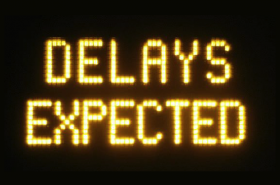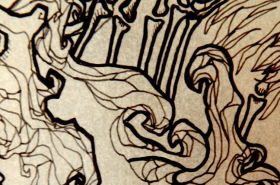I’m pretty sure that somewhere out there is a book written entirely about crafting your novel’s first chapter. It’s a science and an art form at the same time, and it never gets any easier, no matter how many books you write. With your first chapter, you have to paint a picture of a world and get the reader hooked.
When I read as an editor, I want to be interested in your story. Nobody picks up a book and hopes to be bored (unless they’re really strange). And my expectations are being formed from the moment I read your first couple of sentences.
I think we’ve all heard some kind of advice about opening with a bang. That can mean a literal bang, like a gun going off or an explosion, or it could be something as innocuous as “All my Saturdays were exactly the same until that one.”
You can go about your hook lots of different ways, and I’m going to talk briefly about two big ones. 1) The Ordinary Day and 2) The Day It All Changes.
In #1, you open with an ordinary day. Your protagonist goes about her daily business, and perhaps one or two things are odd or out of place, but for the most part, it’s business as usual. What keeps the reader reading? The promise that things will change. The ordinariness of the day is necessary to establish the character or for contrast with what comes later.
In #2, you open with the moment that the protagonist’s life goes from ordinary to odd/extraordinary/just different. Maybe she bumps into her long-lost father on the subway or drops a quarter down a drain and discovers some kind of amphibious monster.
With just these two examples, you can see that there are many different ways to write a first chapter, from opposite ends of the spectrum to all the spots in-between.
That is an obscenely brief overview of how to craft a hook, but now I’m going to talk about some basic, universal things that I want to find when I start reading.
1. Setting. It doesn’t have to be complete or fully developed because it’s just the first chapter, but I need to have a sense of place. If your novel takes place in a dystopian world and everything is completely foreign, at least tell me whether it’s barren wasteland or glittery futurism.
2. Conflict/Tension. If you’re starting out with 1) The Ordinary Day, give me an underlying ominous hint that things are about to change. If you’re starting out with 2) The Day It All Changes, it’ll be easier to work some tension in. But the main thing is I don’t want to feel safe. I want to feel like anything can and will happen.
3. Narrator/Tone. Is this going to be a quirky narrative? What POV will it be in? Does the narrator curse like a sailor? Do they have the vocabulary of a grade-schooler or a collegiate? Are they withdrawn or expansive? You don’t have to dump the life history of a character on me – just show me how they talk, and in that you can say a lot about the whole book.
Make sense? Look over your first chapter and ask yourself what it does. Does it introduce the place, the narrator, and the beginning of conflict? If these things aren’t happening, look for the place in your novel where these things actually begin and you might find your real chapter one.



